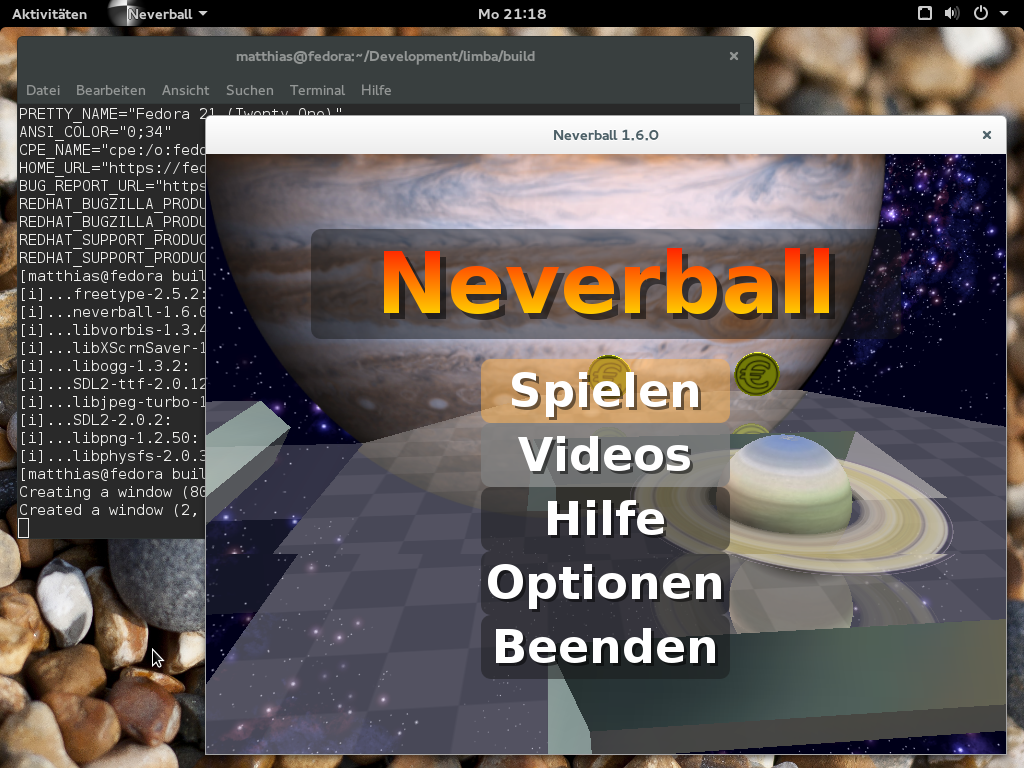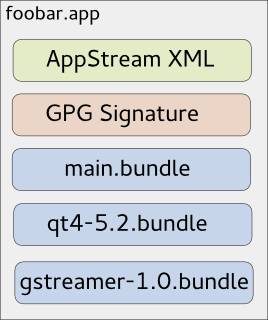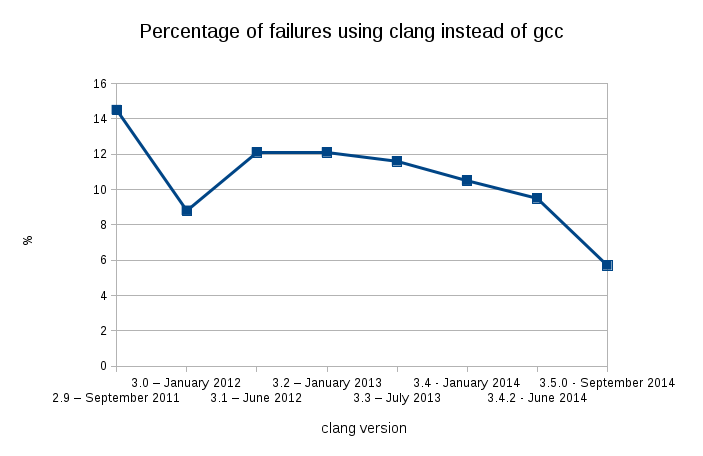Reproducible builds folks: Reproducible builds: week 50 in Stretch cycle
What happened in the reproducible
builds effort between April 3rd and April 9th 2016:
Media coverage
Emily Ratliff wrote an article for SecurityWeek called Establishing Correspondence Between an Application and its Source Code - How Combining Two Completely Separate Open Source Projects Can Make Us All More Secure.
Tails have started work on a
design for freezable APT repositories to make it easier and practical to perform reproductions of an entire distribution at a given point in time, which will be needed to create reproducible installation- or live-media.
Toolchain fixes
Alexis Bienven e submitted patches adding support for
SOURCE_DATE_EPOCH
in several tools: transfig,
imagemagick,
rdtool, and
asciidoctor. boyska submitted one for
python-reportlab.
Packages fixed
The following packages have become reproducible due to changes in their
build dependencies:
atinject-jsr330
brailleutils
cglib3
gnugo
libcobra-java
libgnumail-java
libjchart2d-java
libjcommon-java
libjfreechart-java
libjide-oss-java
liblaf-widget-java
liblastfm-java
liboptions-java
octave-control
octave-mpi
octave-nan
octave-parallel
octave-stk
octave-struct
octave-tsa
oar
The following packages became reproducible after getting fixed:
- apt-listchanges/2.88 by Robert Luberda.
- cgal/4.8-1 by Joachim Reichel.
- erlang-bitcask/2.0.2+dfsg-1 by Nobuhiro Iwamatsu.
- geneweb/6.08+git20160228+dfsg-2 by Guillaume Brochu.
- glance/2:12.0.0~rc2-1 uploaded by Thomas Goirand, original patch by Chris Lamb.
- gle-graphics/4.2.5-4 by Christian T. Steigies.
- maude uploaded by Andreas Tille, patch by Alexis Bienven e.
- psqlodbc/1:09.05.0100-3 by Christoph Berg.
- resource-agents/1:3.9.7-3 by Christoph Berg.
- vgabios/0.7a-6 by Reiner Herrmann.
- vim/2:7.4.1689-2 by James McCoy.
- xmhtml/1.1.10-2 by Graham Inggs with Reiner Herrmann's help.
- xscreensaver/5.34-2 uploaded by Tormod Volden, original patch by Sascha Steinbiss.
- rkward/0.6.5-1 uploaded by Thomas Friedrichsmeier, original patch by Philip Rinn.
- mailfilter/0.8.4-1 uploaded by Elimar Riesebieter, original patch by Chris Lamb.
- bind9/1:9.10.3.dfsg.P4-6 uploaded by Michael Gilbert, original patch by Reiner Herrmann.
- bzr/2.7.0- 3,4 by Jelmer Vernooij.
- samba/2:4.3.6+dfsg-2 uploaded by Mathieu Parent, fix by Jelmer Vernooij.
- fwupdate/0.5-3 by Mario Limonciello.
- paraview/5.0.1+dfsg1-1 by Anton Gladky.
- #819883 on debootstrap by Reiner Herrmann: tell tar to sort the archive members.
- #819885 on chktex by Sascha Steinbiss: use the time of latest
debian/changelogentry as documentation timestamp. - #819915 on kannel by Alexis Bienven e: use the time of latest
debian/changelogentry as documentation timestamp. - #819921 on basket by Alexis Bienven e: remove build date from debug info.
- #819965 on openarena-data by Alexandre Detiste: normalize file permissions before creating
.pk3archive. - #820016 on gabedit by Alexis Bienven e: sort object files used to build the executable.
- #820032 on bibledit-gtk by Alexis Bienven e: remove useless included
Makefile. - #820072 on synfig by Alexis Bienven e: remove build date from info output.
- #820148 on autopkgtest by Alexis Bienven e: fix install order to cope with locales with case insensitive globbing.
- #820152 on anope by Alexis Bienven e: remove build date from the version string.
- #820179 on aodh by Alexis Bienven e: remove build date from the documentation.
- #820183 on cython by Alexis Bienven e: add support
SOURCE_DATE_EPOCH. - #820194 on nasm by rain1: sorts keys when traversing hash tables used to build the documentation.
- #820226 on chrony by Alexis Bienven e: add support for
SOURCE_DATE_EPOCHto preset thentp_era_splitparameter. - #820457 on recode by Alexis Bienven e: use system
help2man. - #820522 on gtkspell by Alexis Bienven e: force shell to
/bin/shin exampleMakefile.
- An architecture agnostic summary has been added to the reproducible-tracker.json by Valerie Young to make it easy to parse whether a package is unreproducible anywhere.
- To find more reproducibility issues a new variation was added to the i386 builders, so that one build is done using a 32 bit kernel (686-PAE) and the other build is using a 64 bit kernel (amd64). (h01ger)
- Niko Tyni was the first to notice a bug due to this: #821182 perl: embeds kernel architecture information
- The 2nd builds are now done in fr_CH on amd64, de_CH on i386 and it_CH on armhf. (h01ger)
- The variation table has been updated to reflect the recent changes and various small bugs have been fixed. (h01ger)
 What happened in the
What happened in the  Today I spend some time to go through the lists.debian.org bugreports.
In consequence I created three new lists:
Today I spend some time to go through the lists.debian.org bugreports.
In consequence I created three new lists:


 during the last weeks, I spent time mostly with
during the last weeks, I spent time mostly with  The annoucement below just went to the
The annoucement below just went to the 




